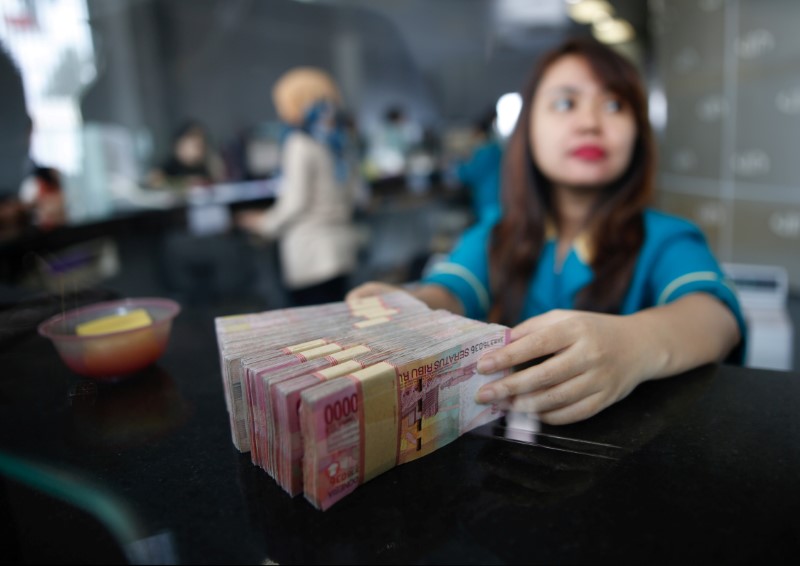By Fransiska Nangoy and Jongwoo Cheon
JAKARTA (Reuters) - Emerging markets in Southeast Asia were slammed on Friday as Donald Trump's shock victory in the U.S. presidential election reverberated around the world, with Malaysian and Indonesian central banks acting to try to defend their currencies as investors sold stocks and bonds.
The latest selloff was triggered by investors revising their expectations, with a growing consensus that Trump's economic policies will be inflationary and push U.S. rates up faster than previously thought, driving funds out of emerging markets and into dollar-based assets.
Yields on benchmark 10-year Treasuries have spiked 41 basis points in the past two days as investors scrambled to readjust positions.
Emerging markets in Asia are particularly vulnerable to hot money outflows, and investors have been unsettled by the deep uncertainty over how broad U.S. and international policy will ultimately play out under Trump.
During Asian trading, the Malaysian ringgit sank to more than 12-year lows in the offshore market.
The ringgit's one-month non-deliverable forwards (NDFs)
By contrast, the ringgit spot
Bank Negara Malaysia, however, made sure the spot rate remained relatively stable in the onshore market, traders said.
Malaysia's central bank governor Muhammad Ibrahim told a news conference, called to release upbeat economic growth and current account data, that the ringgit should not be priced out of sync with fundamentals.
And, he said, the central bank had a responsibility to tell banks to take temporary measures to calm the market.
"We don't want to be dictated by factors that have nothing to do with the country's fundamentals," Ibrahim said.
Later, the central bank issued a statement in which it added that it was providing necessary liquidity in the currency market.
Traders in Kuala Lumpur said the central bank had told them not to quote offshore rates and was approving large ringgit sell orders on a case-by-case basis. The tactic seemed to work with onshore trade reportedly very thin.
HOT MONEY HEADACHE
However, rising yields on Malaysian government bonds showed how much pressure the ringgit has come under. Yields on 10-years have jumped 22 basis points since Wednesday, while those on 20-year and 30 year bonds have soared 21 basis points and 10 basis points, respectively, over the same period.
Almost 40 percent of Malaysian government bonds are in foreign hands.
Malaysian stocks (KLSE) were down almost one percent.
Indonesian markets also dived in early trade. Indonesia has enjoyed relatively high inflows into stocks and bonds markets in the past few months, making it vulnerable to hot money outflows at times of uncertainty.
The rupiah
Nanang Hendarsah, an official at BI, said the rupiah's sharp drop was caused by sudden hedging activity in the NDF market, but noted outflows from Indonesian markets were contained so far.
Bank Indonesia intervened in both forex and bonds markets, deputy governor Mirza Adityaswara said. The central bank is ready to buy government bonds and will maintain the rupiah's value to reflect Indonesia's economic fundamentals, he said.
By trading drew to a close in Jakarta (0900 GMT), the rupiah had recouped some of its losses to stand 1.1 percent weaker than the previous close against the dollar.
The yield of Indonesia's 10-year government bonds jumped on Friday to 7.462 percent, its highest since July 1, from 7.417 percent. Foreigners own 38.4 percent of outstanding Indonesian government bonds.
Philippine stocks were also caught in the selloff with the main index (PSI) tumbling more than 2.5 percent. The Philippines peso
For investors, particularly for those in emerging markets, the short term might prove a head-spinning affair.
"Mr Trump's economic policies present an upside risk to rates," said Khoon Goh, head of Asia research at ANZ.
"This, coupled with the depreciation pressure on Asian currencies, has put serious pressure on Asia's carry trades."
